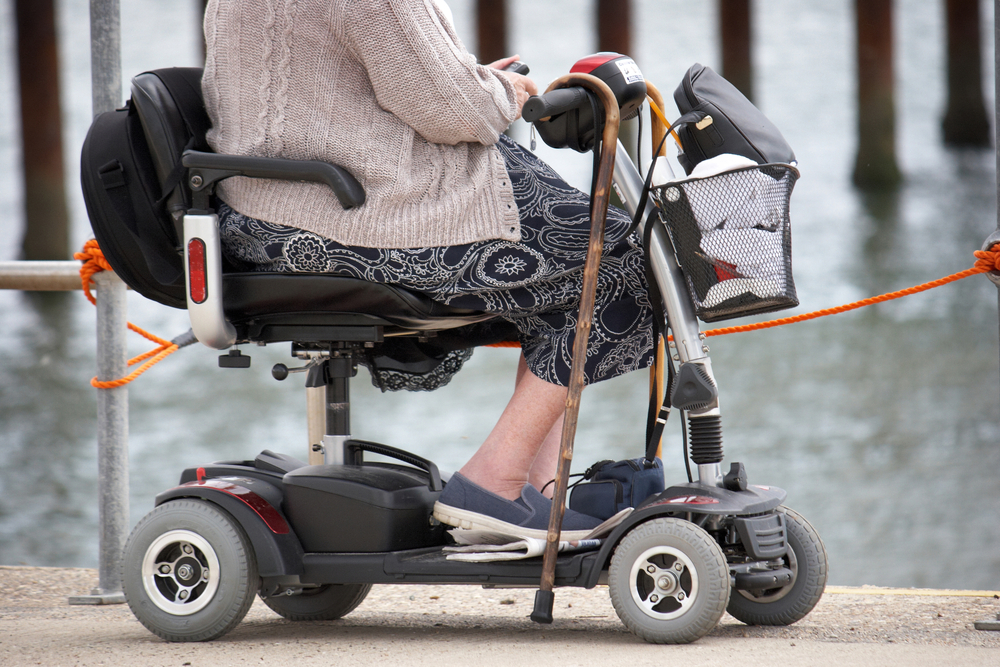 When it comes to your mobility, you should never cut corners or make compromises. It’s important that you select the absolute best mobility aid option available to you—one that meets your unique needs and provides you with the independent mobility you deserve. But how do you know which type of mobility aid is best for you? Should you select a wheelchair, walker, or scooter? Keep reading to learn how to choose between these options and the various types of mobility aids within each category.
When it comes to your mobility, you should never cut corners or make compromises. It’s important that you select the absolute best mobility aid option available to you—one that meets your unique needs and provides you with the independent mobility you deserve. But how do you know which type of mobility aid is best for you? Should you select a wheelchair, walker, or scooter? Keep reading to learn how to choose between these options and the various types of mobility aids within each category.
Is a Walker Right for You?
Walkers are designed for those who retain some mobility of their own. They can stand with support, and move their feet forward, even if it is only at a shuffling gait. Walkers provide the essential support and balance these individuals need to get around so that they don’t have to rely on other people or nearby objects in order to move about. If you believe that your mobility levels are best served by just a little bit of extra support, then a walker is likely the best option for you.
However, there are several different types of walkers. A standard walker has four legs with rubber caps on the end of each (though some people like to add a tennis ball to them to reduce the friction on the feet, and make it easier to slide the walker forward). These walkers can provide a lot of support and stability. However, they also require a certain amount of upper body strength to move them forward, since you’ll have to lift them slightly with each step. This can quickly become tiresome over distances. If you’re looking for a walker to get around your house, and you aren’t considered about the strength and balance needed to lift and set down the walker, then a standard model might be right for you.
Rollator walkers are best for those who have good muscle control and want to be able to get around a bit more quickly than with a standard walker. Each leg has a wheel at the bottom of it, so the walker glides forward smoothly and naturally with each step you take. They are good for those who might need a little help with balance, but don’t necessarily need their walker to bear much weight. In fact, those wheels can make it dangerous to lean too heavily on the walker, as it could roll out from under you. Rollators do have brakes, however, as well as a built-in seat that allows you to turn your rollator into a seat whenever you need a rest.
Two-wheeled walkers are a compromise between standard and rollator walkers, with wheels only on the front legs of the walker. This allows you to put your weight forward to lift the rear legs and roll forward. However, if you need to lean heavily on the walker, the rear legs will make contact with the ground again, preventing it from rolling forward too quickly.
Is a Wheelchair Right for You?
Wheelchairs are for those with more serious disabilities, who aren’t able to bear weight on their legs for any significant amount of time. Wheelchairs provide seated mobility, either via a motor or through manual force. They’re highly versatile as well, depending on the type of wheelchair you get, and can be used in your home, in public indoor spaces, as well as outdoors. There are three main types of wheelchairs:
Is a Scooter Right for You?
Mobility scooters are generally best for those with good upper body mobility, but limited strength in their lower bodies. Because scooters are controlled using bicycle-like handlebars, you must have more strength and dexterity with a scooter than you would need to use an electric wheelchair’s joystick. They’re also quite fast, making them a great choice for outdoor excursions or shopping trips, when you might want to move along at what would be a brisk walking pace for an ambulatory individual.
If you’re not sure whether a scooter, wheelchair, or walker is right for you, call or stop by Elixair Medical to speak to an associate about the mobility aids that we have in stock.